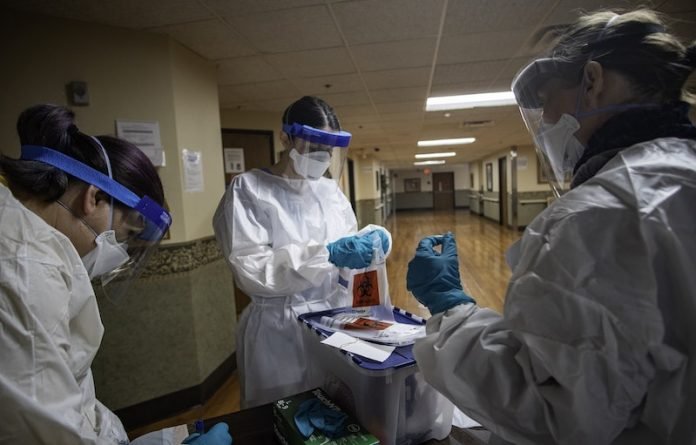
In a recent study from George Washington University, researchers developed a blood test that quickly detects if someone has COVID-19 and predicts how severely the immune system will react to the infection.
The finding may lead to a powerful tool to help doctors determine the best treatment plan for people with COVID-19.
Currently, there is no good way to predict how the immune system will respond to the virus that causes COVID-19 or other disease-causing microbes.
The immune response could range from mild symptoms, all the way to critically severe symptoms, which can lead to the intensive care unit or even death.
In the study, researchers sequenced whole blood RNA from COVID-19 patients whose symptoms ranged from asymptomatic to severe.
They found visible changes in the cells of people with COVID-19. Their analysis also revealed that COVID-19 severity was associated with an increase in neutrophil activity and a decrease in T-cell activity.
Neutrophils and T-cells, both a type of white blood cell, are part of the body’s immune system and help fight off infections.
In other words, the body’s immune system response, as measured by neutrophil activity, signals that there’s an infection whether caused by a known, novel, or variant pathogen.
The team says this test could prove very valuable during the pandemic, especially as variants continue to spread and doctors need to be confident in identifying the problem and providing effective treatment.
If additional studies prove the test is effective, the researchers plan to seek an emergency use authorization from the U.S. Food and Drug Administration.
If you care about COVID, please read studies about existing drugs that can kill COVID-19 virus, and these old vaccines can fight COVID-19 pandemic.
For more information about COVID, please see recent studies about the cause of severe inflammation in COVID-19, and results showing this drug duo may help cure COVID-19.
The research is published in PLOS One and was conducted by Timothy McCaffrey et al.
Copyright © 2022 Knowridge Science Report. All rights reserved.



